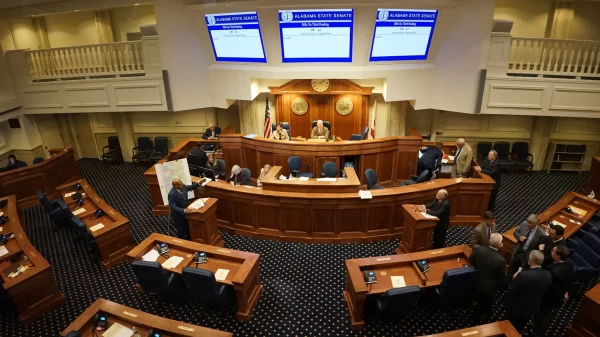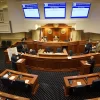By Chip Brownlee
Alabama Political Reporter
A bill passed in the Alabama Senate and awaiting action in the House Ways and Means Education Committee could reduce the amount of state funding school systems could receive to offset the costs of new school buses, the Alabama Schools Transportation Association has warned.
Local school systems under current state law and Alabama Board of Education Policy can receive funding of about $6,300 for every bus that is less than 10 years old. The funding from the state, which amounts to about 80 percent of the cost of a new school bus over 10 years, can only be used for fleet renewal and provides an incentive for school systems to replace aging buses.
“Over 10 years, you’re getting back about 80 percent of what a new bus would cost you,” said Alabama Schools Transportation Association President Jackilyn Barefield. “If we don’t keep this Fleet Renewal money, it hinders us.”
Senate Bill 202, sponsored by Sen. Paul Bussman, would adjust the existing 10-year depreciation schedule to a maximum of 200,000 travel miles, meaning that school systems would only receive funding for buses that are less than 10 years old and have less than 200,000 travel miles.
While the adjustment might lengthen the amount of time some districts could receive funding on certain school buses, it might reduce it for other districts that have more rural routes and travel more miles on a single school bus. Those buses could hit the 200,000-mile limit faster.
The bill would also make it so schools only receive about 70 percent of the value of a school bus, reducing the amount of funding from about $6,300 to about $5,000, Barefield said, making it harder for school systems to pay for new buses.
“All of our buses are less than 10 years old, so I’m getting that money every year to make my payments,” Barefield said. “The safety and technology on school buses change from year to year. Do you really want to keep a bus and hinder the systems from being able to upgrade their fleets?”
Over the last ten years, safety changes on buses have made the backs of bus seats taller to provide more of a shield and prevent injury in the case of a wreck. Other technological advancements have added WiFi, GPS and air-conditioning to other buses.
And systems would only receive about 30 percent of that funding for school buses that have already been paid for, Barefield said, which would punish school systems that pay for their buses in full or finance the costs for less than 10 years.
By keeping aging buses longer, Barefield said the proposal would also increase maintenance and upkeep costs on older buses.
Alabama’s Fleet Renewal Program has long been a national leader and has kept Alabama’s bus fleets among the most modern and safe in the nation, Barefield said.
“Why try to correct something if it’s not broken,” Barefield said. “Other states look at how we do fleet renewal to see how they should do it for their state. This works. Why change it?”
The House committee will hold a public hearing Wednesday morning.




















































